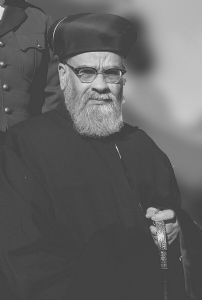A Short Tribute
Hacham Yitzhak Nissim was born in Baghdad in 1896 on the First night of Hanukkah. He immigrated to the Land of Israel with his family in 1908, at the age of twelve. Eight years later, Hacham Yitzhak Nissim returned to Baghdad, where he married and began his studies. He is considered one of Iraq’s greatest sages yet, despite his being called Hacham Nissim, refused all official appointments. He immigrated to Israel in 1925 with his spouse Victoria, where his home became a meeting place for Torah scholars. He was renowned for the broad scope of his vision and general knowledge, and sought out from afar for advice on halakhic issues and matters of community leadership. His library of religious books is remarkable in its category.
In 1955, he was appointed Rishon LeZion, Chief Rabbi of Israel. Upon entering the position, his unique and independent approach to most matters in his domain became immediately apparent. He sought out dialogue and friendly relations with all levels of society. His visits to kibbutzim and Israeli towns, his trips abroad to the Jewish communities, his approach, conversations and wonderful ability to explain the outlook of Judaism attracted those who were distant from the fold and contributed to increasing mutual understanding.
Following the Six Day War, as President of the Great Rabbinic Court, he had the court moved to the Hall of Hewn Stones, the historic location of the Sanhedrin during the Second Temple Period. Hacham Yitzhak Nissim remained in his role for eighteen years, until 1973. On midday of Tish'a B’Av, the date of the Temple’s destruction, in the year 5741 (1981), he passed away. His main book is the Yein HaTov Responsa.
